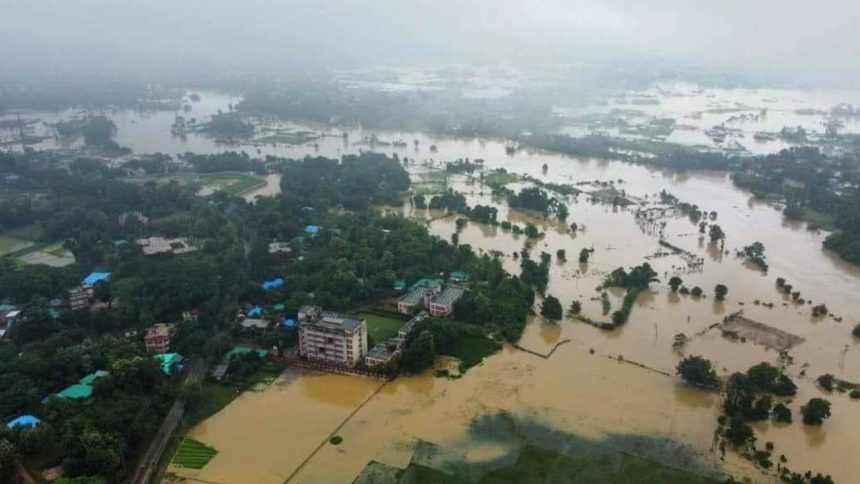As floods wreak havoc in various parts of Bangladesh, Prime Minister Shehbaz Sharif has extended support for the people of Bangladesh during these challenging times.
The prime minister wrote to Bangladesh’s Chief Advisor Dr Muhammad Yunus, telling him that Pakistan stood with Bangladesh during this period of adversity. He highlighted resilience of the Bangladeshi people during challenging times, and expressed confidence that the country’s leadership would take it out of this crisis.
It is worth mentioning here that 4.5 million citizens have been affected by the floods caused by heavy rains. At least 13 people have been confirmed to have died in the deluge. Bangladesh’s Ministry of Disaster Management and Relief confirmed heavy flooding and mudslides have killed hundreds, displaced millions and wrecked infrastructure.
The low-lying areas of the country have been swamped and efforts are going on to evacuate the people in the flood-hit areas. According to the reports, around 190,000 individuals had been moved to emergency shelters amid the chaos. Of the 64 districts, 11 have been affected by these devastating floods. The navy and army are actively trying to rescue the people through speedboats and helicopters.
Bangladesh has hundreds of rivers, and has seen heavy floods during the past few decades, resulting in complications for the country of 170 million. Courtesy of the changing climate patterns, Bangladesh’s frequency of extreme weather events is on the rise and today the country is among the states most vulnerable to the effects of climate change.
It is worth mentioning here that the changing climate patterns have been wreaking havoc in different parts of the world. Often, states who contribute little to the global greenhouse emissions are the ones who suffer the most. Another example in this regard is Pakistan, where the devastating floods of 2022 led to the loss of precious lives while destroying infrastructure amounting to billions of dollars.
While there have been calls for the international community, particularly the developed states, to help the developing states deal with these extreme weather events, nothing significant bas been done in this regard. In 2022, the international community pledged a substantial amount to help Pakistan, but they are yet to materialize. This raises questions about the seriousness of the developed states to deal with the climate crisis.
Moreover, there have been warnings at international level that the time to act is now, and if the world does not act immediately, it might be too late to do anything in the future, and the damage incurred may be irreversible. So, the floods, and extreme weather events, such as the ones confronting Bangladesh and other nations, serve as a reminder of the necessity of dealing with climate change promptly, before things spiral out of control.












